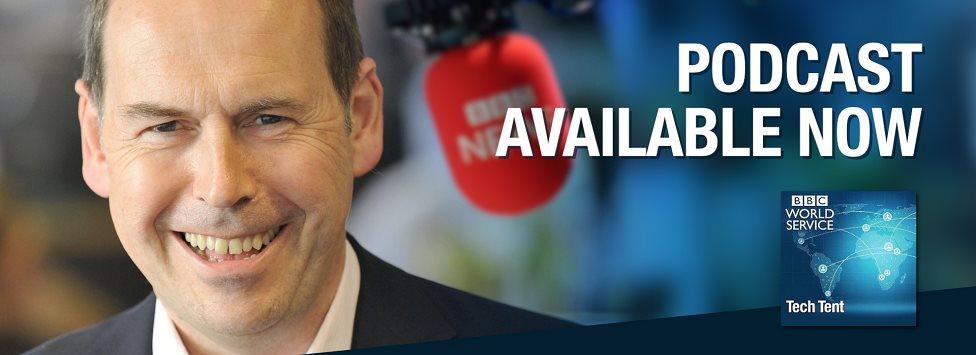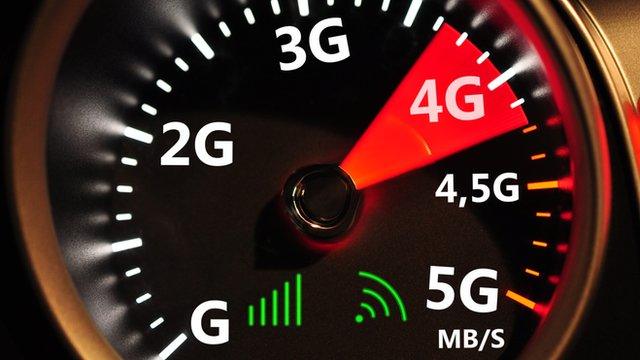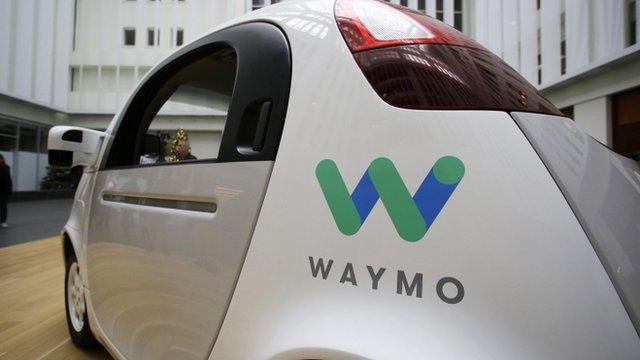Tech Tent: Can Facebook foil the fakers?
- Published

Stream the latest Tech Tent episode on the BBC website
Download, external the latest episode as a podcast
Listen to previous episodes on the BBC website
Listen live every Friday at 15.00 GMT on the BBC World Service

On this week's Tech Tent, we bring you 100% genuine news about a plan to help readers of online news decide what's fake and what's not. And we look into the 5G future and ask whether we need ever faster speeds on our mobile phone networks - especially for a time when driverless cars will be commonplace.

Facebook has reached out to fact-checking organisations to help tackle fake news
Facebook tackles the fakes
In the last month our programme has covered the mounting concerns about the spread of fake news, documenting the mounting pressure on Facebook to act. Now the social network has come out with a series of measures, external designed to help its users distinguish between truth and lies.
The measures include asking fact-checking organisations to examine disputed stories and then issue warnings to readers, and an attempt to disrupt the finances of fake news sites by stopping them from masquerading as genuine news organisations. Facebook has also identified a problem where people share fake news headlines without having read the stories first - and will try to make such stories less prominent in newsfeeds.
But the immediate reactions to this initiative show how sensitive this issue is and how hard it will be to make a difference. Conservative commentators said the fact-checking organisations chosen were biased towards liberals and accused Facebook of being bent on suppressing alternative viewpoints.

Futuristic phone technologies may not make mobile browsing faster, warn experts
5G - miracle or myth?
It will give us a world of seamless connectivity and data transfers at lightning speeds - and it will be the essential infrastructure of the Internet of Things, where driverless cars, smart bus-stops and litter-bins and every other object you can imagine are all connected to the internet. That at least is what we've been told about 5G, the next generation of mobile network technology.
But a forthcoming book The 5G Myth will argue that the technology has been massively overhyped - and that the need for ever greater speeds and much more capacity from our mobile networks has been exaggerated.
The author is Prof William Webb, an engineer and telecoms consultant. He also started an Internet of Things company and now runs a standards body trying to agree how machines will talk to each other - but he's still sceptical about whether they will need 5G.
"All those machines will require very little data," he tells us. "They will increase traffic by almost nothing." He also believes that, just as airliner speeds peaked with the Concorde and have since declined, we can already go quite fast enough on 4G and there will be little demand for one gigabit per second mobile data speeds.
We put that point of view to Professor Rahim Tafazolli, director of the 5G Innovation Centre at the University of Surrey. You won't be surprised to hear that he disagrees.

Google has spun out its driverless car unit into a company called Waymo
Driving into the future
This week Google - or rather Alphabet as we must learn to call its parent company - announced it was spinning its driverless car operation out of the laboratory into a standalone division called Waymo. That was seen as a sign that the company was now serious about commercialising its autonomous vehicle research, though it looks as though that may be in partnership with manufacturers rather than building its own cars.
Meanwhile Uber took to the streets of its hometown San Francisco with its driverless cars. It then ran straight into trouble when one car was seen running a red light - though the company claimed that was human rather than machine error. The state of California, generally permissive about autonomous vehicle research, ordered the Uber vehicles off the road.
We discuss with Justin Westbrook from the car site Jalopnik what these two bits of news tell us about the progress towards a world where nobody is behind the wheel. My own sense is that this is a lot further away than the optimistic folks in Silicon Valley - and at some carmakers - would have us believe.